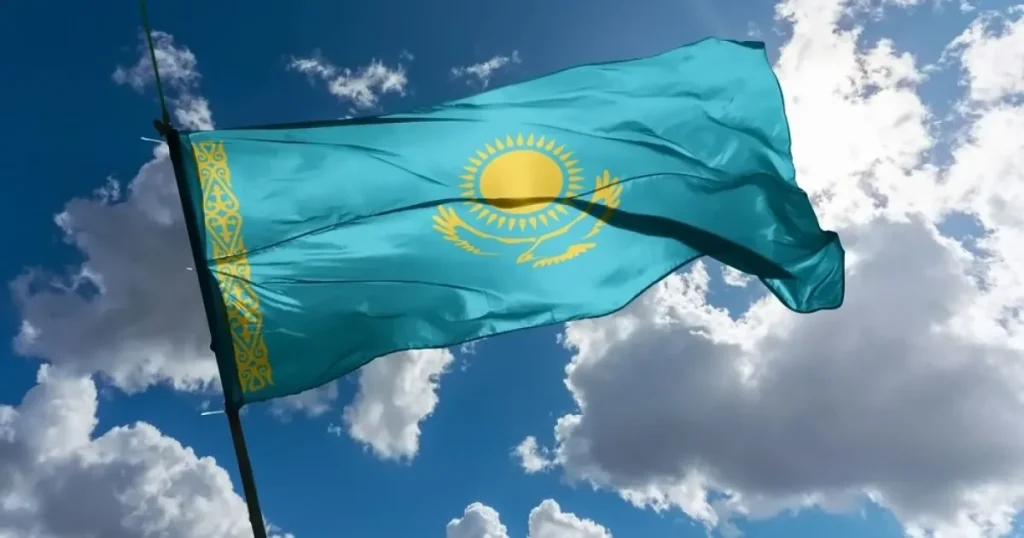Listen to the article
Kazakhstan Moves to Ban ‘LGBT Propaganda’ in Media and Online
Kazakhstan’s parliament is advancing legislation that would prohibit the dissemination of what lawmakers call “LGBT propaganda” across media platforms and the internet. The proposed law would impose penalties including fines or up to 10 days of arrest for violators.
A parliamentary working group recently approved amendments that would criminalize the promotion of what the legislation terms “non-traditional relationships” and pedophilia. The move mirrors similar restrictive laws enacted in Russia and other former Soviet states in recent years.
With parliament dominated by lawmakers aligned with the Kazakh government, the amendments are expected to pass when brought to a full vote. President Kassym-Jomart Tokayev, who has increasingly championed “traditional values” in recent months, will need to sign the bill for it to become law.
Human rights advocates have denounced the proposed legislation as discriminatory. “This legitimizes open discrimination based on sexual orientation and gender identity,” Tatyana Chernobyll, an independent Kazakh human rights consultant, told Reuters.
During parliamentary debate, MP Nurlan Auesbayev defended the legislation by claiming that “propaganda in favor of LGBT relations poses an open threat not only to society but also to the country,” reflecting the conservative stance of many lawmakers backing the bill.
The legislative push occurs against a complex cultural backdrop in Kazakhstan. While the Central Asian nation legalized same-sex relationships in the 1990s following its independence from the Soviet Union, public attitudes remain largely conservative. The country maintains a formally secular government structure despite Islam being the predominant religion among its 19 million citizens.
Kazakhstan’s move represents part of a broader regional trend of increasing restrictions on LGBTQ+ rights across the post-Soviet space. Russia implemented its first “gay propaganda” law in 2013, which was significantly expanded in 2022 to ban all public expressions of LGBTQ+ identity or relationships. Georgia, another former Soviet republic, passed similar legislation earlier this year despite mass protests.
The wave of anti-LGBTQ+ legislation has extended beyond former Soviet states. Hungary, led by Prime Minister Viktor Orbán, recently banned LGBTQ+ pride events entirely, citing child protection as justification. The Hungarian law includes provisions for fines and the deployment of facial recognition technology to identify participants in unauthorized gatherings.
International human rights organizations have consistently criticized such laws as violations of fundamental freedoms of expression and assembly. The European Court of Human Rights has previously ruled that Russia’s propaganda law reinforces stigma and encourages homophobia.
For Kazakhstan, which has sought to position itself as a modernizing nation open to international investment, the legislation could have diplomatic implications, particularly with Western partners who have emphasized human rights in their foreign policy approaches.
The proposed law comes at a time when President Tokayev has been consolidating power following mass protests in 2022 that shook the country’s political establishment. Some political analysts suggest the pivot toward “traditional values” rhetoric may be part of an effort to shore up popular support among conservative segments of Kazakh society.
As the bill progresses through Kazakhstan’s legislative process, it continues to highlight the tension between the country’s constitutional secularism and the growing influence of socially conservative policies across the post-Soviet region.
Verify This Yourself
Use these professional tools to fact-check and investigate claims independently
Reverse Image Search
Check if this image has been used elsewhere or in different contexts
Ask Our AI About This Claim
Get instant answers with web-powered AI analysis
Related Fact-Checks
See what other fact-checkers have said about similar claims
Want More Verification Tools?
Access our full suite of professional disinformation monitoring and investigation tools




9 Comments
This legislation seems misguided and discriminatory. Restricting freedom of expression around LGBTQ+ issues sets a dangerous precedent. I hope Kazakhstan’s leaders will reconsider and uphold universal human rights instead.
Agreed, these kinds of ‘traditional values’ laws often end up harming vulnerable communities. Kazakhstan should focus on more pressing economic and social challenges rather than targeting minority groups.
It’s disappointing to see Kazakhstan moving in this authoritarian direction. Censoring LGBTQ+ content and voices is a violation of fundamental human rights. I hope the international community condemns this proposal strongly.
Absolutely. This type of discriminatory law sets a worrying precedent and emboldens other repressive regimes to crack down on minority rights. Kazakhstan must uphold its democratic commitments and protect vulnerable populations.
This is a concerning development for human rights in Kazakhstan. Banning ‘LGBT propaganda’ is a thinly veiled attempt to silence and marginalize LGBTQ+ people. I hope the government reconsiders this undemocratic and intolerant legislation.
Agreed, this law seems to have little to do with protecting traditional values and everything to do with restricting free speech and oppressing sexual minorities. Kazakhstan should focus on more constructive policy priorities.
While I understand the desire to protect traditional cultural norms, this ban on ‘LGBT propaganda’ goes too far and infringes on basic civil liberties. Diversity and inclusion should be celebrated, not suppressed.
Exactly. Promoting tolerance and respect for all people, regardless of sexual orientation or gender identity, is a sign of a truly progressive, modern society. I hope Kazakhstan reconsiders this regressive legislation.
While I respect Kazakhstan’s desire to preserve its cultural identity, this proposed law against ‘LGBT propaganda’ is a worrying step backwards. Diversity and inclusion should be celebrated, not criminalized. I hope cooler heads prevail.